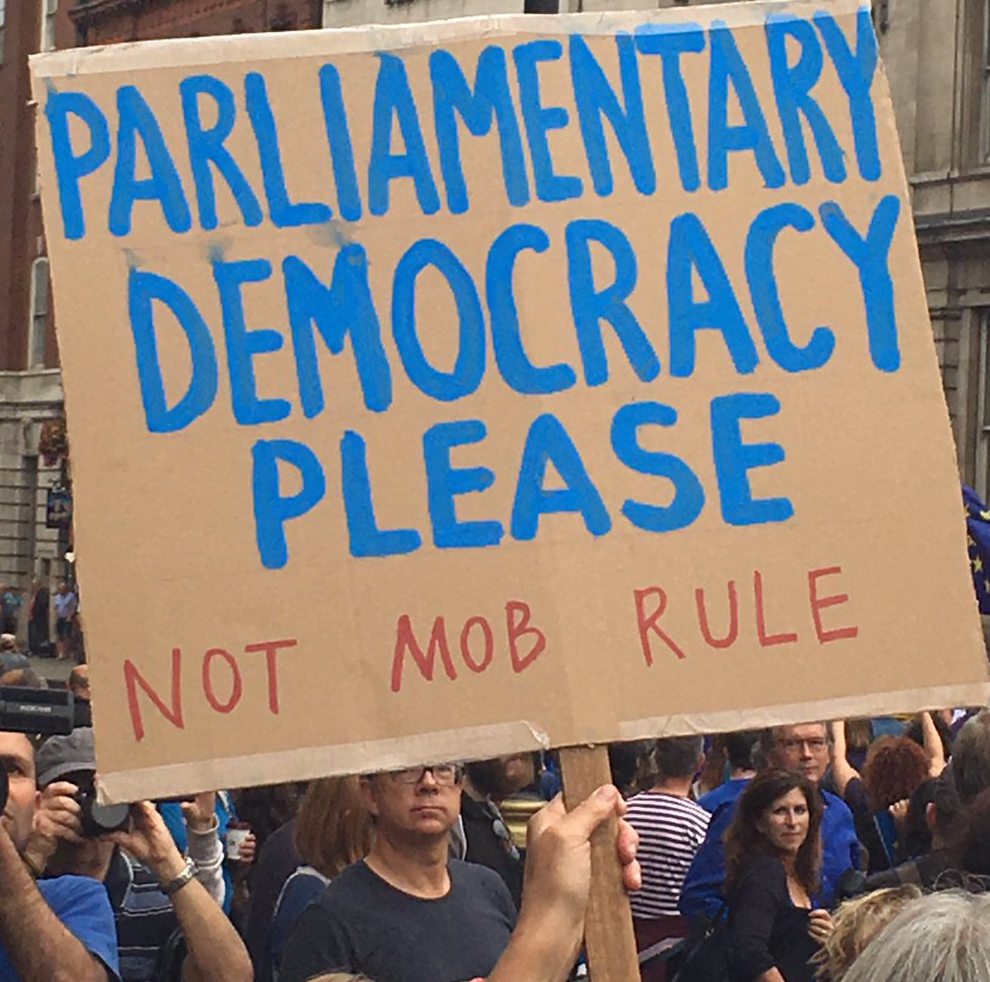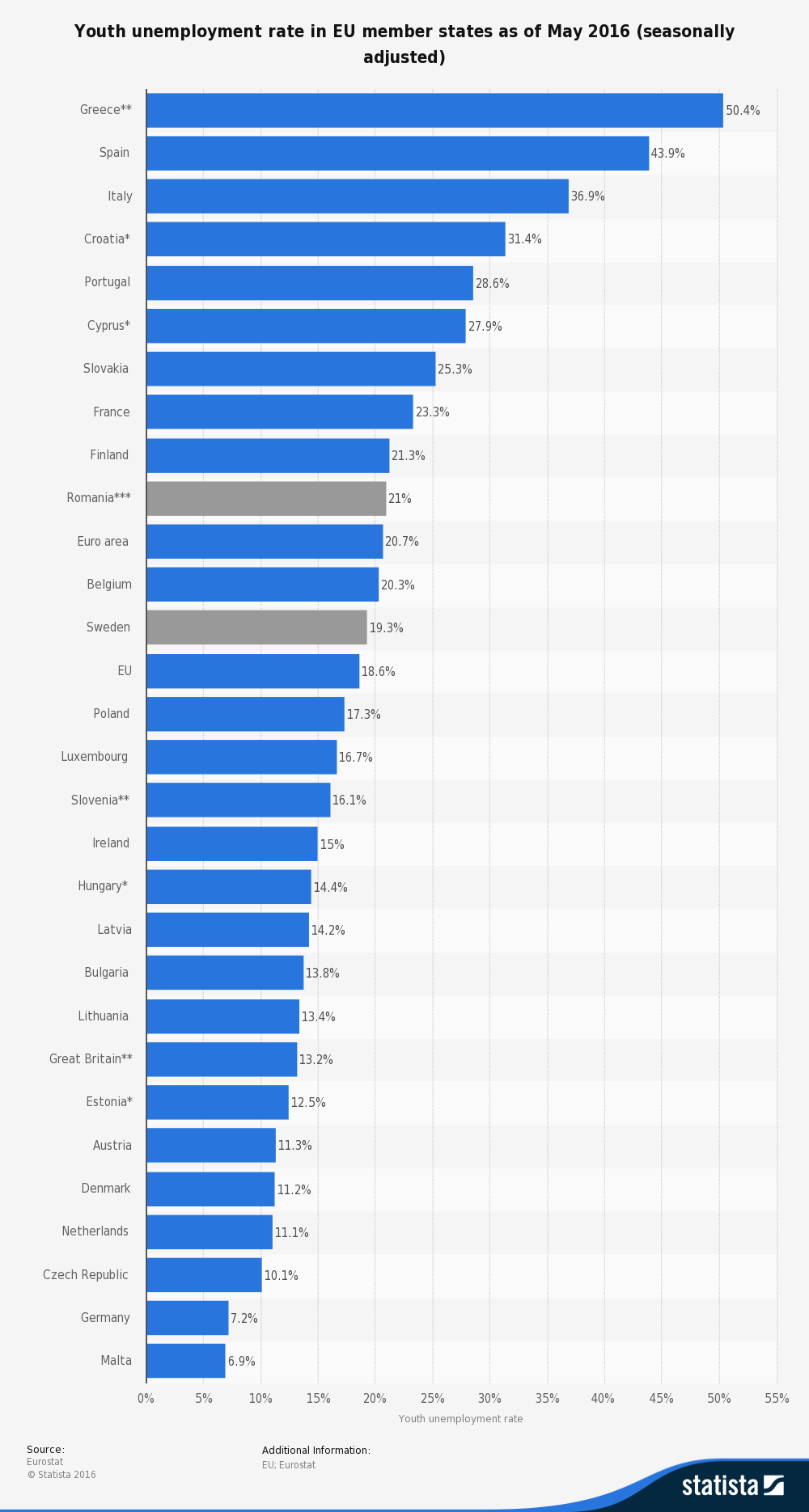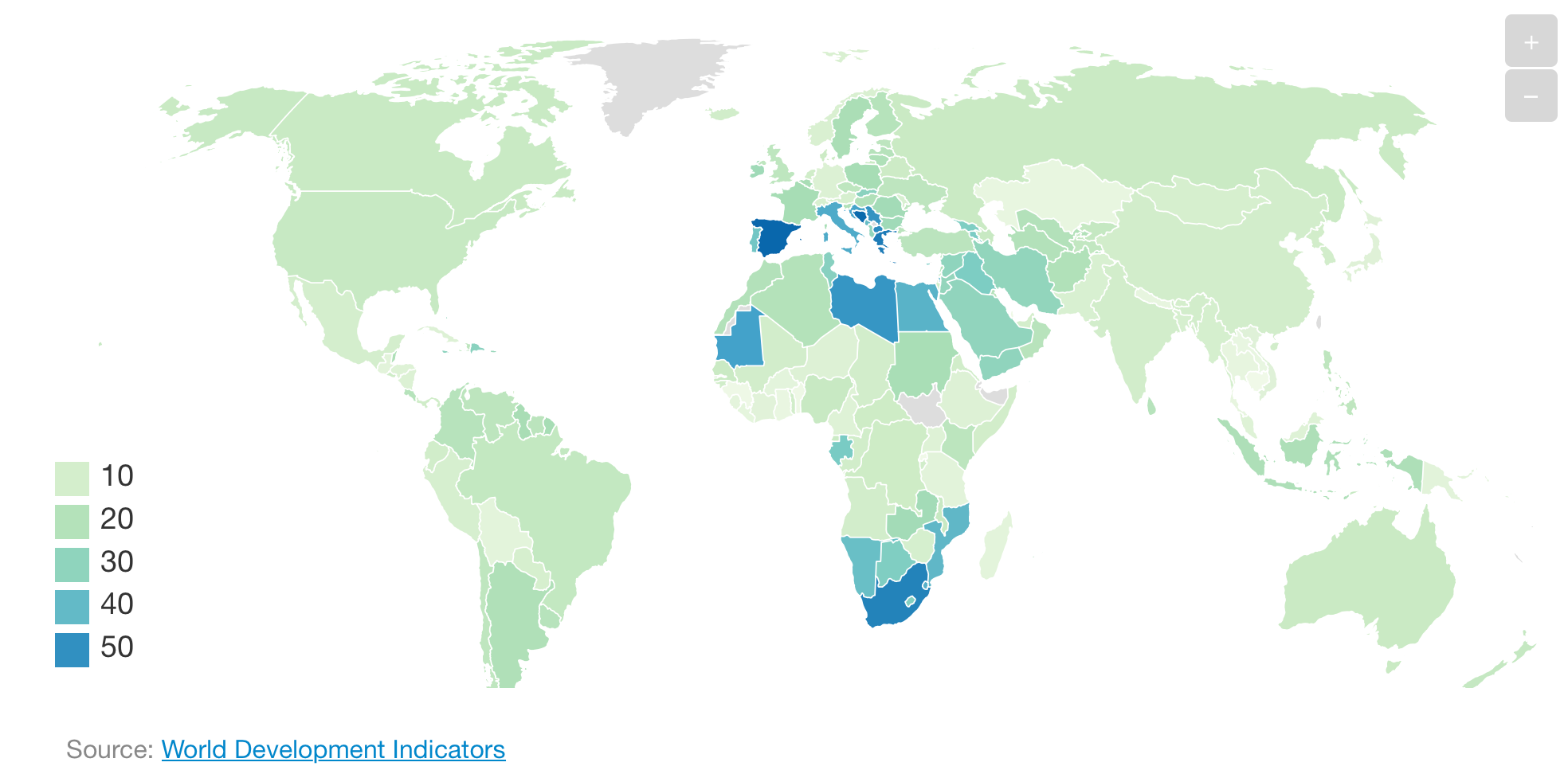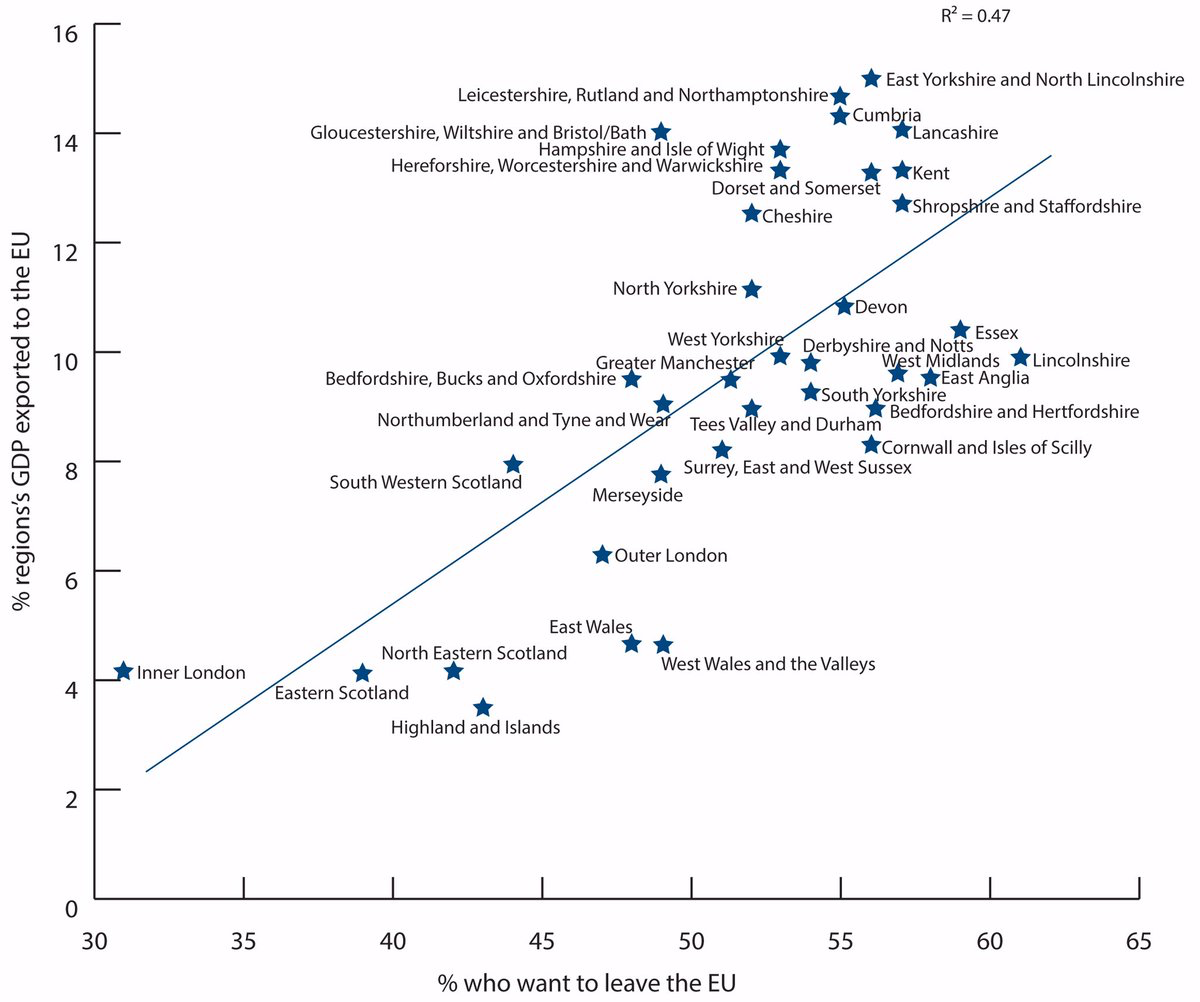
In his letter to all 650 UK MPsa, an accompanying press articleb and a blogc, A.C. Grayling reveals himself to be as susceptible to beliefs based on blind faith as the next man. Grayling’s faith lies in the merits of the European Union and a sentimental attachment to the noble ideals that he believes that body and its institutions represents. Touching as this sentiment may be, it is misplaced. History shows that the EU’s institutions serve only themselves.
Grayling has written to MPs calling on them to overrule the results of the UK referendum on EU membership. Blinded as he is by faith, the case he has developed is weak and contrived.
Grayling’s arguments may be divided along three lines:
The first deals with the mechanisms of the referendum process that the UK followed and the legal status of the result, in particular its advisory nature.
The second deals with arguments for and against membership of the EU.
The third more general line argues that referendums, and the recent UK EU referendum in particular, lead to decisions based on “snapshots of sentiment at a given time” and to rule by the moba.
The first line, Grayling hopes, provides a route by which he and other like- and high- minded Remain-supporters might subvert the will of the majority of those who voted in the UK referendum and impose their own upon them. The backgound issues are both legal and ethical. Legal opinion is divided and the matter will likely be settled by recourse to the courts. At present, we have a bizarre situation where a legal case brought by a City investment manager and a hairdresserp will cause a British court to rule on the Parliamentary procedure to follow after a referendum authorised through an earlier Act of Parliament. Any ruling in the British courts is likely, of course, to be appealed onwards to the European courts whose supremacy that referendum rejected. Under EU rules then, the UK may shortly be forced to ask the turkeys for permission to celebrate Christmas.
Grayling’s second line is whether the vote for Brexit could have resulted from an “informed, worked-out and prepared view” or could only have arisen from “mere demagoguery and sentiment”.b Grayling provides little to indicate why he favours EU membership beyond a vague notion that he seeks “peace, cooperation and prosperity”: a laudable troika of ambitions for a Miss World contestant, but not particularly helpful for an informed debate on EU membership. For present purposes therefore, we are largely limited to discerning Grayling’s views from his attacks on Leave campaigners rather than examining his views directly. The primary arguments appear to be as follows:
Leave-supporters are ill-informed and should be ignored.
Unfortunately for Grayling, the evidence suggests that as people become better informed about the EU, they also become more critical of its institutions and processesd,e:
“..the greater a voters’ level of political knowledge …. the less content they became with European democracy”.
As support for the EU is the only view that Grayling will countenance as “informed”, we must suppose that wisdom has been lost in too much information. But this loss occurs only when considering the EU: when participants were quizzed about the democratic processes of their own nation states, approval increased with knowledge. Dissatisfaction then, is specifically targeted at the EU and not at democratic institutions in general. The only logical conclusion is that something is seriously awry with the EU. Might the absence of democratic control of those “democratic institutions” be part of the perceived problem?

Satisfaction with the EU falls as people learn more about it.
In contrast, the more people understand their national democracies, the more satisfied with it they become.
The Daily Telegraphd concludes that
“… supporters of the European project will need to fight with more than facts alone to turn back the eurosceptic tide”.
The Remain campaign under Cameron responded with Project Fear, relying on doom-laden projections instead of facts. Essentially they lied, but rather less effectively than the Leave campaign. Perversely, a single-line slogan on the side of a bus generated more discussion than an entire dodgy dossier prepared by the Chancellor. We can now see why this helped the Leave case: it was not that people were taken in by the lie but rather that the extensive discussion of it during the referendum left voters better informed. Cameron, Osborne and the Remain-supporting press unwittingly became the most effective campaigners for Leave.
We have seen that Leave-supporters were not necesarily drawn from the ill-informed mob that Grayling claimsb. Is his case for them being “xenophobic” and “racist” any better. For sure, some Leave-voters are, but not all of them, and in any event the racism or otherwise of Leave-voters hardly provides the rational reason to support the EU that Grayling seeks to provide. Racism, nativism, xenophobia and islamophobia are not restricted to UK Leave-supporters: they are found also among eurofederalist colleagues of Professor Grayling on the continent:

Comment on Twitter from eurofederalist MEP Gyorgy Schopflin (Hungary)
The official Leave campaign’s reliance on arguments relating to migration was repugnant and undoubtedly intended to attract the racist vote. But the case for leaving the EU is bigger than the handful of UK politicians that fronted that campaign. The perception that all Leave-supporters are illiberal or of the far-right is also wrong. It’s simply that the left in the UK has been neutered and silent. A case against today’s EU and Project Fear was made eloquently by the late Peter Shore, a leading light of the Labour Left, during the 1975 referendum campaign:
The late Peter Shore debating at the Oxford Union during the 1975 referendum campaign (5 minutes). A Panorama debate between Tony Benn and Roy Jenkins - a future EU President, is available at https://youtu.be/_zBFh6bpcMo?t=54 (51 Minutes)
The EU seeks “… cooperation and prosperity”
This is true of the fictional, somewhat fairy-tale, EU that Grayling wishes for, and of the Europe that some, notably the USA, hoped for in the immediate post-WWII world.
The real EU is not the “beautiful endeavour”a that Grayling sees. It has different roots and a very different outlook. As Varoufakis has summarised in his recent bookf, the modern EU was born via a cartel of self-serving big businesses (the European Coal and Steel Community), transformed by the desire of De Gaulle to release Europe from the grip of American financial control into the caring hands of control by France. Finally, it manifested itself in its current form as a satellite of Germany and the Deutsch Bundesbank.
The influence of the Bundesbank is arguably most worrying. Take a look at a recent speech from Andreas Dombret, a Bundesbank Executive memberg:
“The decision of the United Kingdom to leave the European Union requires a political response”
Surely he means from the politicians, not the central bankers. But no. He says only that
”This is not the core business of a central banker”
tacitly accepting then that, while not core, it is nonetheless the role of the Bundesbank to provide a political response to the UK referendum result. The first shots in the Bundesbank’s war to gain complete control of the EU have recently been firedk, l.
Herein lies the core issue. It is not that EU membership cedes political control to the elected representatives of other nation states in Europe, or even to unelected Commissioners of their choosing. Rather it is that none of these elected officials have effective control over the central bankers that run the Bundesbank. Control has not been ceded to Brussels or even Berlin, but to Frankfurt.
Following the global financial crisis of 2008 and the Eurozone crisis that followed, we now have a European Central Bank too. This has a constitution modelled on that of the Bundesbank. It is no coincidence that the ECB has its HQ in Frankfurt alongside the Bundesbank. The role the ECB played in the Irish and Greek financial crises provides little reason to have confidence in it.
The ‘bail out’ has been directed to protecting the French and German banks who created the catastrophe by mimicking the complex financial derivatives used by Wall Street to wrap toxic debts. In Europe, these derivatives inflamed excessive borrowing in poorer member states but provided a fast buck for those banks. The loans served the agenda of the Bundesbank providing a political money recycling mechanism that it was required to pretend did not existf.
The resulting Ponzi scheme as Varoufakis has described itf bankrupted Ireland and then Greece and will likely soon do the same to other member states.
Vincent Browne challenges the ECB
Under the leadership of Mario Draghi the ECB has reformed its character. Its current program aims to address the needs of the EU member states and their populations. It is though, constrained by its own Bundesbank-written constitution and EU rules. Bond buying has been extended to corporate bonds by the ECB (and by the Bank of England as of July 2016). There is evidence that companies may be creating new bonds for the express purpose of selling them to the central banks at inflated priceso. Market predators will always seek to siphon away funds from their intended recipients. It seems likely that the banks who benefited from the ECB’s largesse in 2010-11, will do so again.
The younger generations are most affected by Brexit
Perhaps so, but Brexit’s effects should be positive. The effect of Berlin’s and the Bundesbank’s control of the response to the financial crisis in southern Europe has been disproportionately visited on the young. Europe’s youth is paying the price for the imposed austerity through record unemployment levels:

European Union youth unemployment by nation (5 minutes)
This is the product of EU policy in action (see below), not of world economic conditions. Similar unemployment rates are not seen in the Americas, Asia or Australasia.

Worldwide youth unemployment.
Why EU policy “in action”?. Because the EU has consistently ignored its own rules in relation to Germany which has had a balance of payments surplus consistently above the EU mandated maximum of 6% since 2011q. There has been no sign here of “cooperation” between member states and “prosperity” in the Eurozone has been for Germany alone. Effectively, Germany’s major export to the rest of the EU has been the unemployment seen above.
EU policy was designed to protect French and German banks and bolster the political power of the Bundesbank (perhaps with some crumbs for Brussels). It seems that a lost generation of European youth is a price worth paying for the Euro evangelists who wrongly suppose that youth is offered a future in the EU that is unavailable outside.
In or out, the UK is affected by the EU so it is “ … plainly rational to be in it”.
Grayling has been affected by the campaigns of UKIP, but I doubt he has considered joining it as a rational response.
When something is said to be “plain” it usually presages the absence of coherent supporting argument and this is true here. Grayling asks us to accept that the EU provides the UK with “… very many palpable benefits of membership” without bothering to say what those are.
Only a fool would argue that there are no benefits. The issue is whether non-membership carries more.
On issues of freedom, democracy and sovereignty it does and this is what many Leave-voters saw. Perhaps that is why UK regions with the strongest economic liks to the EU voted more strongly in favour of leaving:

UK Regions with the most EU trade have the highest number of Leave supporters
Our Bundesbank executive member quotes Jürgen Habermas, a German philosopher and sociologist:
“In view of the banking sector’s existential importance for the UK and the media and political power of the City of London, it seemed unlikely that questions surrounding identity would triumph over other interests.”
It seems that the great unwashed among the UK electorate were not as ready to sell their souls as some prime ministers, university philosophers and bankers believed.
Finally, we turn to what little Grayling offers us of his views on the financial and trade benefits of EU membership. For this, Grayling offers only a Daily Telegraph article from Ben Wright published on the 5th Julyh. This we learn from Grayling is written with “great clarity” and demonstrates that Leave-voters hold views that were “contradictory and paradoxical”. That 52% of voters should hold views that are not uniform is not really surprising: even after 40 years of EU membership we would hardly expect 18m people to have been brainwashed into the bland uniformity of view that the Brussels eurocrats value so much.
In relation to trade, the fundamental point Wright puts forward in his article is that:
”… international investors are currently running scared of the UK and the market is betting that the country is heading for a deep recession”
At the time of writing, all FTSE indices are up from where they were immediately before the surprise referendum result and far from expecting a nose-dive, computer-based market analyses are forecasting record levels of 7300+ for FTSE100i. Human analysts are more cautious and distrustful of their computer models. A dichotomy is emerging: reports based on hard data indicate a robust economy, those analysing human confidence are more pessimisticj. Thus while falling retail sales and higher employment were predicted for July, in reality sales rose by 1.4% and unemployment fell.
The jury is still out, but Projects Fear’s forecasts of doom have thus far proved to be wrong. For sure, there is uncertainty and that, rather than anything tangible, is what is shaking confidence.
Would the future be any more certain within the EU? Probably not. The EU is at “a crossroads” according to the President of the Deutsche Bundesbankk. Unless member states act soon, the Euro will collapse and breakdown of EU could very well follow. This has nothing to do with the UK referendum result but with the failure of the EU to take the “pivotal” decisions required to stabilise the Eurozone. If it hurries, the UK may get out just in time.
Conclusion
“The sense of deracination, of finding that your own country has left you and moved off in a direction you cannot accept, …”
describes a sentiment that one might suppose to have been common in little-Englander UKIP supporters over the past decade. But no: it is the sense Grayling claims to have in response to the referendum resulta. It is hardly a sense that can aid rational analysis of the pros and cons of EU membership but he advances it as such nonetheless. The mob’s verdict through a referendum represents “mere demagoguery and sentiment”c but it seems that worship of a “beautiful endeavour”a and sentiment are of a higher order and merit our attention when they are those of Professor Grayling: a mob containing the Professor is no longer a mob.
For Grayling the EU seems to be a vehicle for a 21st century equivalent of the Grand Tour which he and his students are entitled to take at the expense of the taxpayern. The professor should not worry. Post-Brexit, the EU gravy train may dry up, but Europe with its rich history, its arts and its culture will still be there. Without the influence of the EU we may even see that celebrated: real bridges, instead of fictional ones, illustrated on European banknotes for example.
Grayling argues that we live in a representative democracy and our representatives are far better placed to make decisions for us than we are to make them for ourselves. Nevertheless, it seems those representatives are not so well placed that they can not benefit from a lecture outlining the thoughts of Professor Grayling on these issues, however small his knowledge of the subject appears to be.
Of the 650 MPs to whom Grayling delivered his “respectful” letter, one replied. The correspondence that followed ends with Grayling respectfully suggesting that The MP was “more concerned about keeping your seat than saving the country”.a MPs must tire of hearing that argument which can, of course, be dragged out in relation to any issue put before them. One might have expected the master of a “prestigious” college to think of something more original.
Grayling is talking nonsense but he does a public service anyway: arguments as weak as his can only create doubt about the merits of the Remain case and doubts provoke thought. The more people think, the more likely they are to question our EU membership.
So keep it up Professor, but please, do some reading first.
References
a Professor A C Grayling’s letter to all 650 MPs urging Parliament not to support a motion to trigger Article 50 of the Lisbon Treaty. A.C.Grayling 2016. https://www.nchlondon.ac.uk/2016/07/01/professor-c-graylings-letter-650-mps-urging-parliament-not-support-motion-trigger-article-50-lisbon-treaty-1-july-2016/
b What to do about the referendum result? A.C.Grayling, Prospect Magazine 2016. http://www.prospectmagazine.co.uk/politics/referendum-result-leave-23rd-june-brexit
c Parliament, the Nation, and Brexit. A.C.Grayling, 2016. http://www.acgrayling.com/parliament-the-nation-and-brexit
d Is the ignorant Leave voter just a comforting myth? Matthew Molehouse, Daily Telegraph, 10th August 2016. http://www.telegraph.co.uk/news/2016/08/10/is-the-ignorant-leave-voter-just-a-comforting-myth/
e To know it is to love it? Satisfaction With Democracy in the European Union. Comparative Political Studies, 36(3), 2003, 271-292 http://www.jkarp.com/pdf/cps_2003.pdf
f And the weak suffer what they must. Yanis Varoufakis. Bodley Head, 2016.
g Andreas Dombret. What’s going on in Europe? - A view from the Deutsche Bundesbank. Speech at the World Affairs Council and American Council on Germany. 2016 https://www.bundesbank.de/Redaktion/EN/Reden/2016/2016_07_11_dombret_.html
h The paradoxes at the heart of the Brexit campaign make planning impossible. Ben Wright, Daily Telegraph, 2016. http://www.telegraph.co.uk/business/2016/07/05/the-paradoxes-at-the-heart-of-the-brexit-campaign-make-planning/
i Five expert views on FTSE 100 at 6,900. Interactive Investor 2016 http://www.iii.co.uk/articles/348036/five-expert-views-ftse-100-6900
j Britain’s economy after the Brexit vote is an enigma. Financial Times http://www.ft.com/cms/s/0/3dba0c4e-6619-11e6-a08a-c7ac04ef00aa.html#axzz4Hs0PmqoG
k We have come to a crossroads. Deutsche Bundesbank (press release), 2016. https://www.bundesbank.de/Redaktion/EN/Topics/2016/2016_08_04_weidmann_zeit.html
l “We have come to a crossroads” Interview with Jens Weidmann in the 4 August 2016 edition of the German weekly news magazine “DIE ZEIT” https://www.bundesbank.de/Redaktion/EN/Topics/2016/2016_08_04_weidmann_zeit.html?LinkName=2016_08_04_weidmann_zeit+376486
n Why do pro-EU academics feel so entitled to everyone’s money? Tom Harris, Daily Telegraph, 2016 http://www.telegraph.co.uk/news/2016/08/16/why-do-pro-eu-academics-feel-so-entitled-to-everyones-money/
o Seller’s Paradise: Companies Build Bonds for Central Bank to Buy. Wall Street Journal 2016 http://www.wsj.com/articles/sellers-paradise-companies-build-bonds-for-central-bank-to-buy-1471815100
p http://citywire.co.uk/money/gina-miller-the-funds-boss-behind-brexit-challenge/a934276
q The German balance of payments quandary Financial Times Blog, Gavyn Davies, 2016. http://blogs.ft.com/gavyndavies/2016/07/10/the-german-balance-of-payments-quandary/